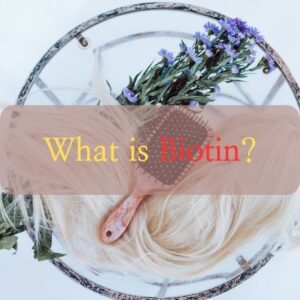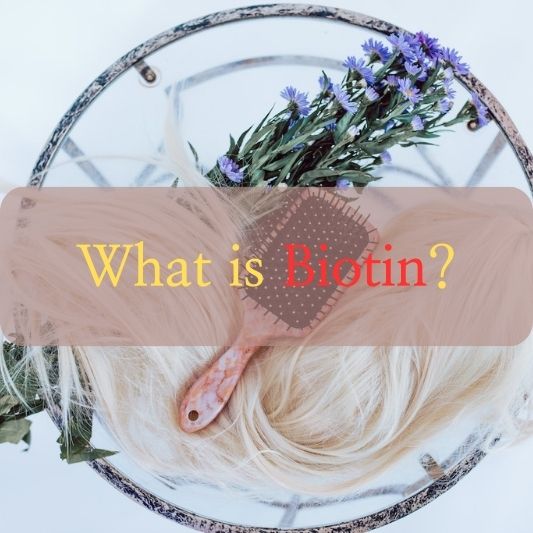Let’s talk about what biotin is. Biotin is one of the essential vitamins our body needs. In this article, we will explore the role, importance, sources of biotin in food, symptoms of deficiency, and the significance of biotin supplementation.

Biotin: What Is It?
Biotin, also known as vitamin B7, is a water-soluble vitamin that plays a crucial role in the production and maintenance of energy in our body. It is also vital for the health of our skin, nails, and hair.
Functions of Biotin
Biotin serves several important functions in our body. Some of these functions include:
Energy Production
Biotin assists in the metabolism of carbohydrates, fats, and proteins, playing a key role in the generation of energy in our body.
Skin Health
Biotin supports the production and normal function of skin cells, contributing to overall skin health and helping prevent skin disorders.
Strengthening Nails and Hair
Biotin contributes to the growth and strengthening of nails and hair, helping to prevent brittle nails and hair damage.
Biotin Deficiency
Biotin deficiency can occur when there is an insufficient intake of biotin. Recognizing and addressing it early is crucial to prevent various symptoms.
Symptoms of Deficiency
The main symptoms of biotin deficiency include:
Skin Problems
Symptoms may include itching, rashes, and dry skin.
Hair Problems
Deficiency can lead to hair loss, thinning, and overall hair health deterioration.
Nail Issues
Brittle nails that break easily and slow nail growth can result from biotin deficiency.
Muscle Pain and Fatigue
Biotin deficiency may lead to muscle pain and fatigue.
Sources of Biotin in Food
Biotin is present in various foods, making it possible to obtain an adequate amount through a balanced diet.
Foods Rich in Biotin
Eggs
Eggs are a rich source of biotin. Consuming just one egg a day can provide a significant portion of your daily biotin intake.
Almonds
Almonds are not only a source of biotin but also provide various other nutrients. Snacking on almonds can increase your biotin consumption.
Broccoli
Broccoli contains a substantial amount of biotin and can be incorporated into various dishes.
Recommended Daily Intake
The recommended daily intake of biotin may vary depending on age and gender. However, for adult men and women, approximately 30 micrograms per day is generally recommended.
Biotin Supplementation
In cases of biotin deficiency, supplementation may be necessary. Biotin supplements are available and should be used under the guidance of a healthcare professional or nutritionist to determine the appropriate dosage.
Conclusion
Biotin is an essential vitamin for our body, playing a role in energy production, skin health, and the strength of nails and hair. To prevent biotin deficiency, it’s advisable to include biotin-rich foods in your diet and consider supplementation when needed.
Frequently Asked Questions
1. How can biotin deficiency be prevented?
To prevent biotin deficiency, ensure a regular intake of biotin-rich foods.
2. What should I do if I experience symptoms of biotin deficiency?
If you experience symptoms of biotin deficiency, consult a doctor to determine the appropriate treatment.
3. How do I choose a biotin supplement?
When selecting a biotin supplement, consult a doctor or nutritionist to choose the right product and dosage.
4. How does biotin affect skin health?
Biotin supports healthy skin cell production and function, contributing to overall skin health.
5. Is the recommended biotin intake different for children?
Biotin intake for children may vary by age and should be determined by a pediatrician’s guidance.
As we conclude this article, we have gained insights into the importance of biotin for our overall health. By consuming biotin-rich foods, you can promote healthy hair, nails, and skin.
Find out the price of biotin on iHub!
